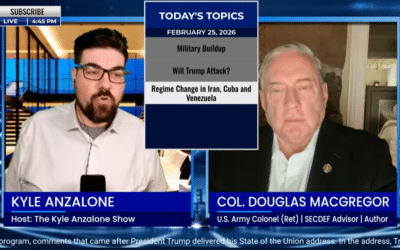By now we’ve heard enough official explanations of Trump’s assassination of Iranian Gen. Qassem Soleimani and others to realize they are all nonsense. (And Secretary of State Mike Pompeo now admits it.) Trump killed Soleimani because, egged on by his unsavory friends Saudi crown prince Mohammad bin Salman and Israeli Prime Minister Benjamin Netanyahu, he has it in for Iran. So when the opportunity to pull off the murder-by-drone came along, he took it. It’s not as though he thought he needed a special justification. It’s good to be the king — er, president.
Most official explanations have entailed some sort of threat to US military or diplomatic personnel, “interests,” or “assets.” And sometimes one US official has had no idea what another is talking about. Trump said four embassies were threatened, but his secretary of defense said that was news to him. Other explanations tie the killings to the breach of the US embassy in Baghdad that occurred after Iran and the US had exchanged strikes in Iraq that took the lives of 25 Iraqis and one American. In other words, it was retribution not prevention. (Killing Iran’s top general while on a peace mission to Iraq seems, let’s say, disproportionate to the temporary embassy breach in which no one was killed or injured.)
If all this is confusing, don’t worry about it: Trump says none of it matters.
But I want to focus on the the initial claim, namely, that Soleimani had been planning “imminent” attacks of some unspecified nature. This, by the way, is debunked by an NBC report that the assassination was planned seven months ago. But we’ll let that go right now.
Since no such attacks occurred, we are entitled to dismiss Trump’s claim. Had attacks been imminent, why would anyone believe that killing Soleimani would stop them? Assassinating him would seem more likely to guarantee them. They were imminent after all.
But let’s go a step deeper — into the grammar, or logic, of all this. I realize that people can use words in differing ways, but I can’t shake the thought that if you are planning to do something, the planned action cannot be imminent. If you tell me something is imminent, I take that to mean the planning is over; execution is next. (Pun unintended but noticed.)
So I would advise that the next time the government tells you it’s killed someone because he was planning an imminent attack, it’s lying.






























![The Kyle Anzalone Show [GUEST] Dave DeCamp: BREAKING: Tucker Carlson detained in ISRAEL! – Trump’s Iran Strategy Exposed!](https://offload-wp-files.sfo3.digitaloceanspaces.com/2026/02/Screenshot-2026-02-27-115531-400x250.png)
